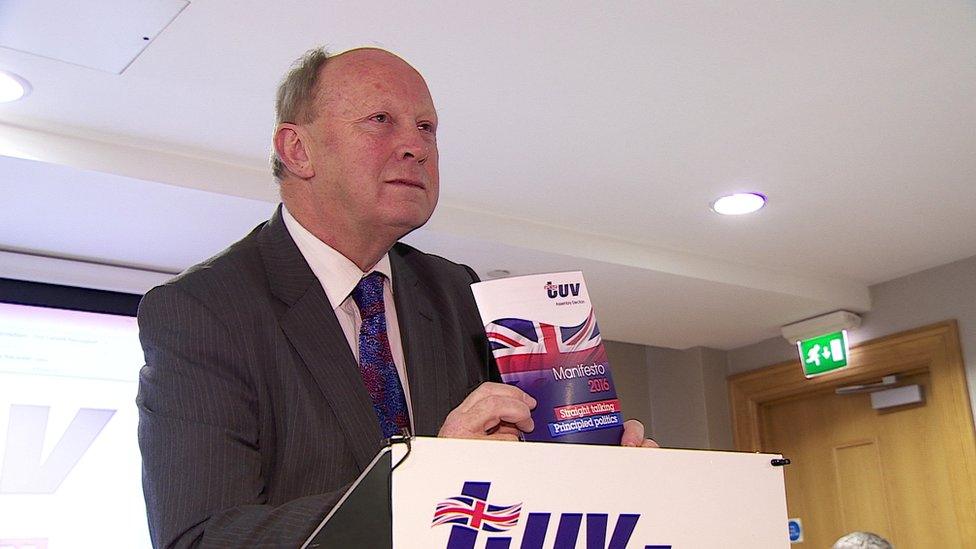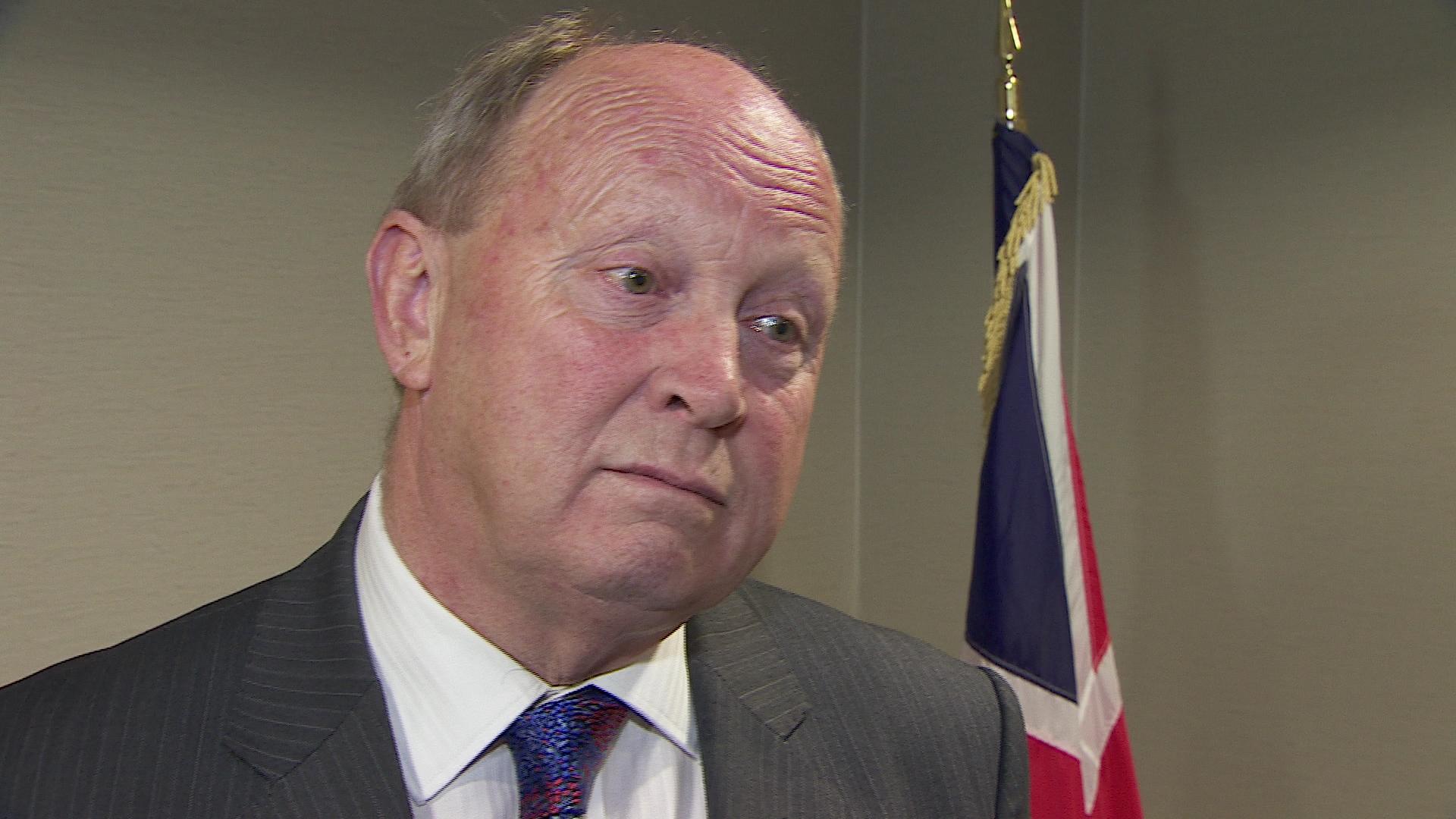TUV leader dismisses suggestions he is planning to retire
- Published

Jim Allister told his party conference that he had no immediate plans to step down as leader
The leader of the Traditional Unionist Voice (TUV) has dismissed suggestions he is preparing to retire.
Jim Allister told his party conference - his eighth as leader - that he was already looking forward to the council elections in 2019, when he hoped to double their numbers.
"It seems it's not yet time for Jexit but happily it's time for Brexit," he told delegates in Cookstown.
He vowed to continue to "shine a light" on the executive's "dark secrets".
He also accused the first and deputy first ministers of hiring a "super spin doctor" in David Gordon "to hide uncomfortable truths under the carpet".

Around 100 TUV members attended the conference - fewer than last year
Around 100 TUV members attended the conference - fewer than last year.
Mr Allister was the only one of the party's 15 candidates to be elected to Stormont in the 2016 assembly elections.
'Slush fund'
However, the party faithful were urged to take comfort in the success of Brexit and Donald Trump's victory in the US presidential election.
"2016 will go down in history as the year when the people rose up to retake control of their destiny," said Mr Allister.
"2016 was our year of liberation from the shackles and torments of the EU.
"An uprising of true patriots, a bloodless revolution that will set our nation on course to be great again - spending our own money, deciding our own laws, being subject to our own courts and making trade deals that suit us."
The TUV leader urged the Ulster Unionists and SDLP to reject mandatory coalition, to ensure they could be elected to govern without any input from Sinn Féin and the DUP.
Mr Allister also accused First Minister Arlene Foster and Deputy First Minister Martin McGuinness of using the social investment fund to pander to paramilitaries.
He described it as a "slush fund" used to win support in communities they struggled to reach.
- Published13 April 2016

- Published13 April 2016
